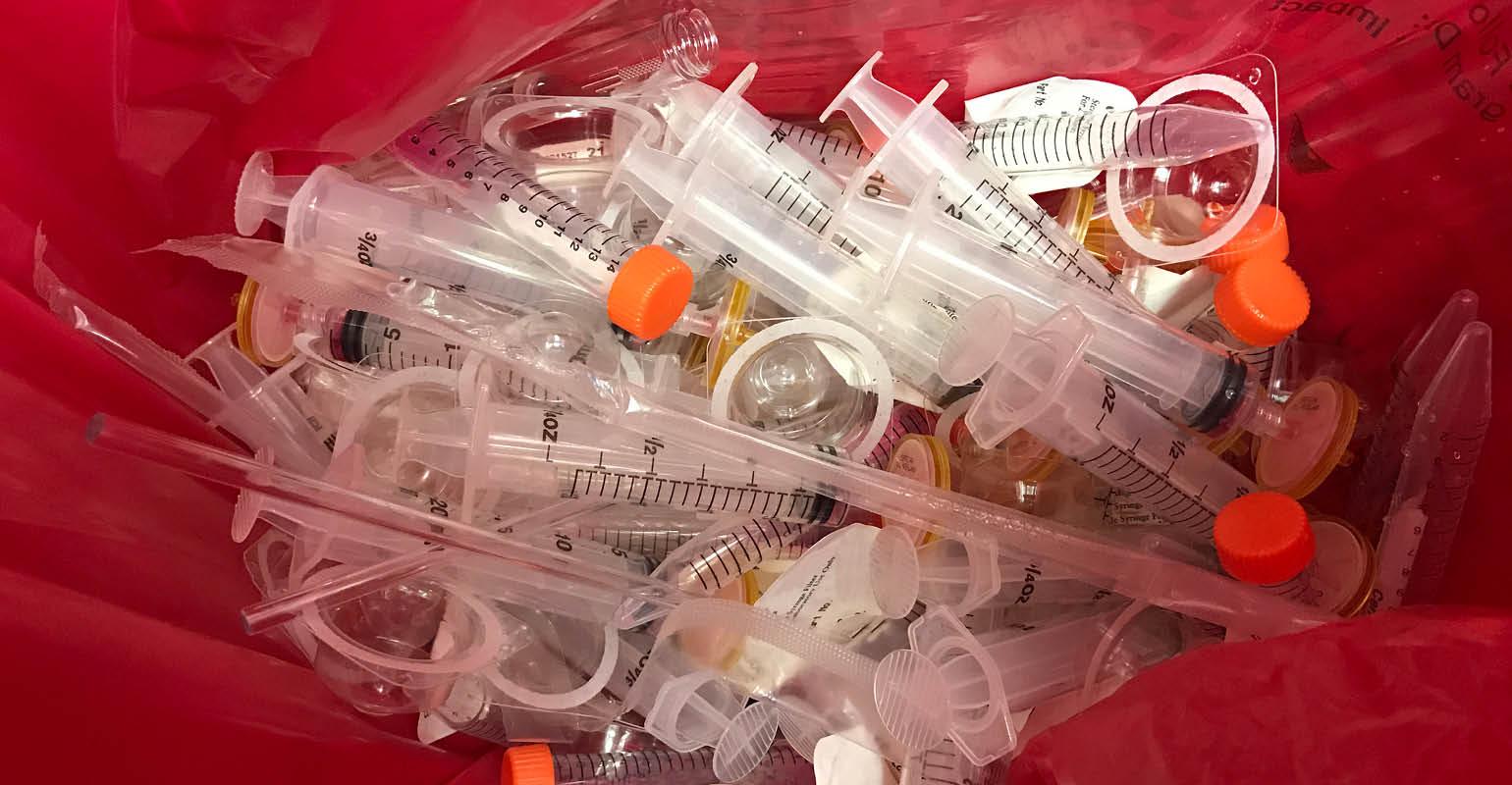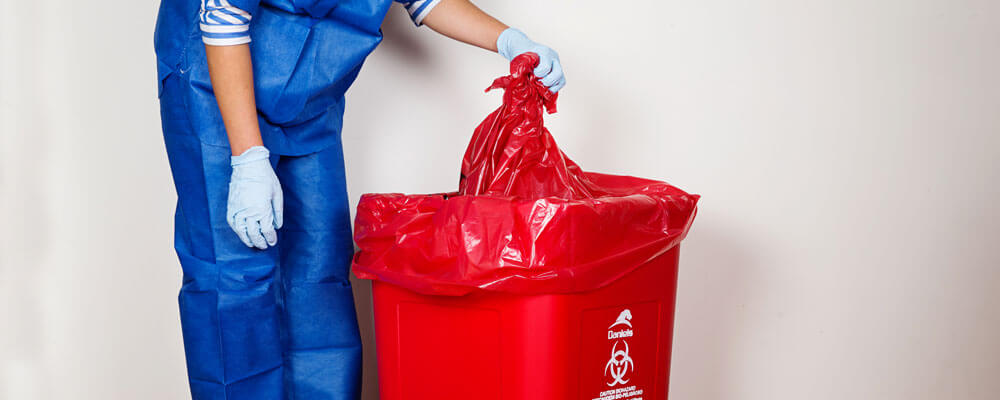Your Relied On Partner: Medical Waste Removal Services Tailored to Your Requirements
Wiki Article
Remain Ahead of Laws: Professional Suggestions on Medical Waste Disposal
In a globe where the health care market is continuously developing, it is necessary for medical facilities to remain ahead of policies when it comes to the proper disposal of clinical waste. From understanding the various categories of clinical waste to carrying out the ideal collection and segregation approaches, this discussion will give beneficial insights and workable suggestions to assist centers stay in advance of policies in the ever-changing landscape of medical waste disposal.Recognizing Medical Waste Categories
Comprehending medical waste classifications is essential for correct disposal and administration in health care facilities. Clinical waste describes any kind of waste generated by medical care tasks that might pose a hazard to public health and wellness or the setting. It is important to classify medical waste precisely to guarantee its secure handling, disposal, therapy, and transport.There are numerous classifications of clinical waste that medical care facilities need to be acquainted with. The most usual categories include contagious waste, pathological waste, sharps waste, pharmaceutical waste, and chemical waste. Each group has details standards and regulations for its appropriate administration and disposal.
Pathological waste refers to human tissues, organs, or body parts that call for special handling and disposal. Pharmaceutical waste consists of expired, unused, or infected drugs that require cautious handling and disposal.
Remaining Up-To-Date With Regulatory Modifications
Remaining existing with governing modifications is crucial for health care centers to make sure conformity and appropriate administration of clinical waste disposal. medical waste removal service. With regulations regularly progressing, it is essential for healthcare centers to remain up-to-date to prevent charges, fines, and possible damage to the environment and public healthTo remain ahead of regulative adjustments, health care facilities must establish a system for tracking and monitoring updates. This can be done by registering for regulative e-newsletters, going to meetings and workshops, and actively getting involved in market organizations. In addition, centers should designate a personnel or team responsible for staying educated and disseminating info to relevant stakeholders.
Routine interaction with regulative agencies is likewise important. Medical care centers need to develop relationships with neighborhood, state, and government companies to ensure they recognize any type of modifications in policies that may impact their waste monitoring techniques. This can be done via normal meetings, involvement in public comment periods, and proactive involvement with regulative companies.
Furthermore, medical care centers need to take into consideration partnering with waste monitoring business that specialize in medical garbage disposal (medical waste disposal services with WasteX). These firms are typically well-versed in the current laws and can offer support and support to make sure compliance
Implementing Correct Collection and Segregation Approaches
To properly handle medical garbage disposal, healthcare centers need to develop correct collection and partition approaches based on governing standards. Applying these approaches makes certain the secure handling and disposal of possibly unsafe products, secures the environment, and lessens the danger of infections and injuries to health care workers and the public.
Correct collection and segregation techniques involve the use of marked containers and classifying systems. Medical care centers must offer clearly labeled containers for various kinds of medical waste, such as sharps, infectious waste, pharmaceutical waste, and non-hazardous waste. These containers should be color-coded and plainly significant to avoid confusion and advertise very easy recognition.
Furthermore, healthcare centers must train their staff on the proper procedures for accumulating and segregating medical waste. This consists of educating them on the various kinds of waste, the suitable containers to use, and the relevance of complying with standards and guidelines. Routine training sessions and refresher courses need to be performed to guarantee that personnel continue to be up-to-date on ideal methods.
Furthermore, medical care facilities ought to develop a system for routine collection and disposal of medical waste. This may include partnering with certified waste management firms that specialize in clinical garbage disposal. These business will certainly guarantee that the collected waste is moved and thrown away in compliance with regulative needs.
Choosing the Right Disposal Techniques

Incineration is just one of the most common and efficient approaches for medical waste disposal services with WasteX getting rid of her latest blog specific kinds of clinical waste, such as pathological waste and sharps. It entails the regulated burning of waste at high temperature levels, minimizing it to ash. Incineration can release harmful pollutants into the air and contribute to air contamination.

Other disposal approaches include chemical therapy, microwave treatment, and landfilling. Chemical treatment includes using chemicals to disinfect and reduce the effects of the waste. Microwave treatment utilizes microwave energy to heat and decontaminate the waste. Landfilling includes hiding the waste in a designated land fill location (medical waste disposal services with WasteX). However, landfilling ought to be the last option as a result of the potential risk of contamination to soil and groundwater.
Guaranteeing Conformity Through Documents and Training
After meticulously thinking about the suitable disposal methods for clinical waste, medical care facilities have to guarantee conformity with regulations and lessen ecological effect by applying efficient paperwork and training procedures. This step is important in maintaining a lasting and risk-free environment for both health care workers and the basic public.
Training is equally vital in ensuring compliance with laws. Healthcare employees who manage clinical waste must obtain ideal training on waste segregation, managing, and disposal treatments. This training should cover subjects such as the correct use of individual safety equipment, recognition of various sorts of waste, and the appropriate disposal techniques for every waste group. By offering extensive training, health care facilities can encourage their team to make enlightened decisions and decrease the threat of inappropriate garbage disposal.
Final Thought
In conclusion, remaining ahead of policies in medical garbage disposal is crucial for medical care centers. medical waste removal services. Comprehending the different categories of clinical waste, remaining upgraded with try here regulative changes, implementing correct collection and partition techniques, choosing the appropriate disposal approaches, and making sure compliance through documents and training are all necessary steps. By complying with these guidelines, healthcare companies can successfully handle and dispose of medical waste in a risk-free and responsible fashionFrom comprehending the different classifications of medical waste to implementing the ideal collection and segregation approaches, this discussion will certainly offer actionable ideas and valuable understandings to help facilities remain ahead of laws in the ever-changing landscape of medical waste disposal. - medical waste disposal services with WasteX
The most typical groups consist of transmittable waste, pathological waste, sharps waste, pharmaceutical waste, and chemical waste. Medical care centers should supply clearly identified containers for different types of clinical waste, such as sharps, transmittable waste, pharmaceutical waste, and non-hazardous waste. Healthcare centers should develop a detailed system to record and track all elements of medical waste disposal, consisting of types of waste produced, amounts, and disposal approaches used. Healthcare employees that handle clinical waste must receive ideal training on waste partition, taking care of, and disposal procedures.
Report this wiki page